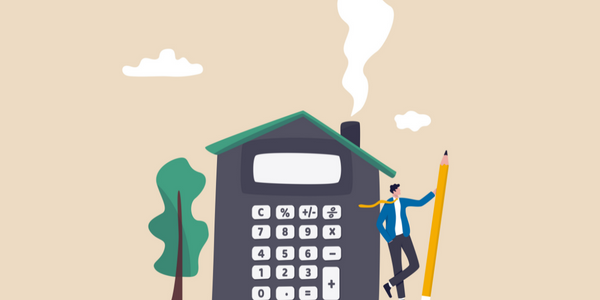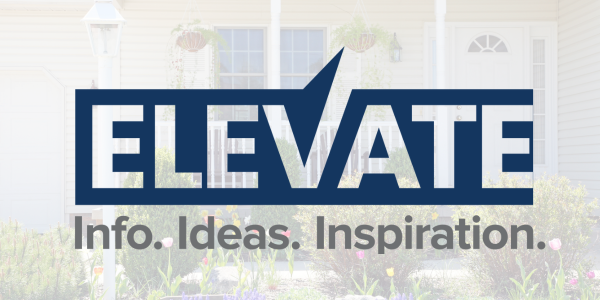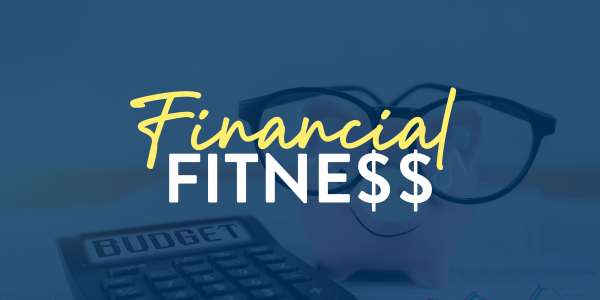
We know you know that buying a house is a major investment—one that can pay off in more ways than one, but still a major investment. This can weigh on a first-time homebuyer who has never made such a large financial commitment.

First, congrats on even considering taking this step! Buying a home requires confidence, perseverance, and knowledge. Second, if you’re freaking out because you’re not sure you know everything you should about getting a home loan, fear not.
A real estate agent is there to help you house-hunt and submit an offer on the home of your dreams. A loan officer is there to walk you through the mortgage process. They will help you figure out what your monthly payments might be, the terms of your home loan, and any other financing questions you have when buying a home.
If you’re a first-time homebuyer, you may not know exactly which questions you should ask. Or you may just be too embarrassed to voice them. Understand that there are no stupid questions when it comes to buying a home, especially as a first-time homebuyer. A trusted loan officer not only recognizes that you don’t know what you don’t know, but they are also a pro at walking you through every step of the process.
So let’s answer some of the most common questions homebuyers should ask. That will make it easier to move on to the fun stuff (like imagining the man cave or she-shed you plan to erect in the backyard).
1. How Much Home Can I Afford?
Fact check: Calculating a budget is the first step in the homebuying journey. You’ll want to figure in things like your income, debts, and expenses to come up with a realistic number. Remember, too, that just because you can qualify for a larger, more expensive house doesn’t mean you need to max out your budget.
Reducing that number by thousands of dollars (or tens of thousands of dollars) can make a noticeable difference in your monthly payments. Plus, you will want to save some cushion for all the expenses that come with buying a home. These include a home inspection, homeowners insurance, a home warranty, and some money set aside for repairs or upgrades to major systems.
2. What Will My Monthly Payments Be?
Fact check: Naturally, the monthly payments on a home loan vary for everyone. That’s because there are many factors that go into this calculation. You have to think about the cost of your home, the closing costs associated with the loan (and whether you choose to roll those costs into the mortgage or not), the size of your down payment, your interest rate (and whether it’s fixed or variable), and the term of your loan.
You should remember to add in any homeowners association (HOA) dues. Also consider the cost of private mortgage insurance (PMI) if you’re putting less than 20% down with most loans. APM’s Home Affordability Calculator can help you get an accurate sense of what your monthly payments may be, based on a few variables. A Loan Advisor can help you get a good estimate as well.
3. How Much of a Down Payment Do I Need?
Fact check: You will often hear recommendations for a 20% down payment, but many home loan programs offer flexibility by including much lower down payment options.
The amount of the down payment can vary based on several factors, including the type of loan, the requirements, and the buyer’s financial situation. Here are some general guidelines for common mortgage types:
- Conventional loans: Typically require down payments ranging from 5% to 20%. Some lenders may offer conventional loans with a down payment as low as 3%, especially for first-time homebuyers.
- FHA loans: These loans require a minimum down payment of as little as 3.5% of the purchase price. FHA loans are popular among first-time homebuyers due to their lower down payment requirements.
- VA loans: Eligible veterans and active-duty military personnel may qualify for VA loans, which often require no down payment.
- USDA loans: These loans, designed for homebuyers in more rural areas, may also offer 0% down payment options.
It’s important to note that a higher down payment typically results in lower monthly mortgage payments. It may also affect the interest rate on the loan. You should carefully consider your financial situation, your goals, and the specific loan programs available to determine the most suitable down payment amount for your circumstances.
Your loan officer can also help with this by reviewing all the pros and cons of each option available.
Down payment assistance (DPA) programs and gift funds can also help you close the gap. Down payment assistance programs often come in the form of grants or low-interest loans, providing a valuable resource for individuals looking to make their homeownership dreams a reality.
Additionally, gift funds from family members or friends can contribute to the down payment, easing the financial burden on the buyer and facilitating a smoother transition into homeownership.
4. How Much Are the Closing Costs?
Fact check: Closing costs typically range from 2% to 5% of the home’s purchase price. They include various fees, including lender fees, the home inspection, the title, and escrow services.
Lender fees are charged by the lender for processing and facilitating the loan. These fees can include a loan origination fee, application fee, processing fee, and underwriting fee. These fees do not necessarily apply to all loans, but your loan officer can go over which fees apply to the options you’re considering. Additionally, your loan officer will provide a full loan estimate at the time of application (or very shortly thereafter) so you can get a clear look at the overall costs.
Getting a home inspection is totally up to you, but it can be a super smart move. It’s like giving your future home a thorough check-up before you seal the deal. This way, you can spot any sneaky issues hiding behind the walls or under the floors before you make it official.
Additionally, there are government-related fees, such as recording fees and transfer taxes, which vary by location and are essential for legally documenting the property transfer. There are also third-party fees, such as title insurance, credit report, appraisal, and escrow fees.
There’s also homeowners insurance to consider. Lenders will ask for it to be in place in time for closing. Also, when you’re sorting out the nitty-gritty at closing, you might bump into some other expenses, like property taxes and HOA fees, which are often prorated and paid in advance at closing.
Your Loan Advisor will provide a detailed breakdown at the start of the process so you can take a look at all the closing costs. They’ll explain the different ways you can cover these fees—including rolling them into your home loan.
5. What Documents Will I Need?
Fact check: When applying for a mortgage, you’ll want to provide financial documentation like W-2s, pay stubs, bank statements, and tax returns. And in a perfect world, you will get pre-approved before you start the house-hunting process.
Each loan program has specific requirements that your Loan Advisor can discuss with you in detail. But we have an overview checklist available for download (and it’s free!) that can get you started.
6. What Is the Interest Rate, and Should I Lock It In Now?
Fact check: Interest rates play a major role in your monthly payments and overall affordability when buying a house. They also change on a daily basis. This means that the rate you see when you first begin to think about buying a home may not be the rate you’re able to lock in once you complete your home loan application.
Since rates change so frequently, there is no one right answer about whether it’s best to lock in your rate or let it float. What you can do is discuss it with your Loan Advisor, which is why this is one of the best questions to ask when buying a home. Programs like SecureLock™ also offer peace of mind by locking in today’s rates for an extended period.
7. Are There Any Pre-Payment Penalties with This Home Loan?
Fact check: Paying off your loan early can save you thousands of dollars in interest over the long run. However, some loans may have pre-payment penalties where you’re actually penalized for paying your home loan off early.
That’s why this is one of the important questions homebuyers should ask before settling on a loan. It’s perfectly fine if you opt for a loan with a pre-payment penalty if your game plan is to keep the loan through the pre-payment period. But it’s something you’ll want to discuss before you sign on the dotted line. If pre-payment penalties are a deal-breaker for you, then your loan officer should know that.
8. Are There Any Other Things I Should Consider?
Fact check: In addition to the mortgage-centric questions above, there are other factors to think about when buying a home.
As mentioned, you’ll want to conduct a thorough home inspection to identify any problems with the house. Also verify the condition of major systems, including plumbing, electrical, and HVAC. This can help you avoid any surprises that can cost thousands of dollars.
You have to keep in mind that once the sale closes, the house is yours for better or for worse. You can always negotiate on points like which items the seller is including in the sale of the house. And you can certainly request repairs or upgrades in your offer.
But only the items signed off in the final sale will make the cut. Any problems with the house after the fact are now yours to handle. With that in mind, there are a few more questions homebuyers should ask before they get too far into the home search. They include:
- How long has the house been on the market?
- When was the last time the seller repaired or replaced any major systems?
- What items are included in the sale of the house?
- Has the homeowner had any problems with the house recently?
Your real estate agent can work to get you these answers. You can also consider buying homeowners insurance and a home warranty. These protections can provide peace of mind if problems with the house do materialize.
Help with Home-Buying
We know that starting the mortgage process is a major step for a first-time homebuyer who’s thinking about buying a home—and we’re here with you and for you. Contact us anytime to get some basic information, have your specific questions answered, or start the home loan process.








